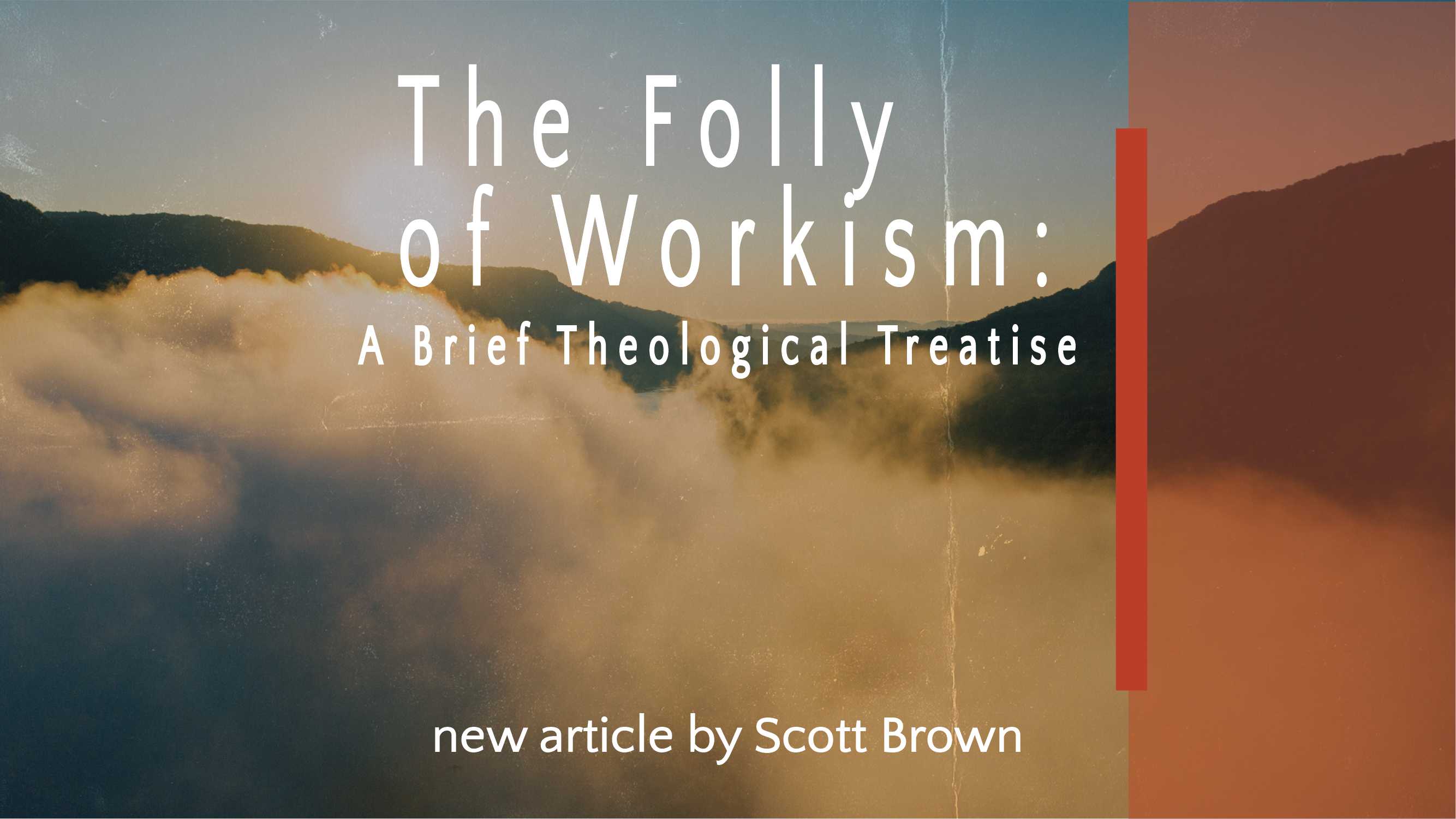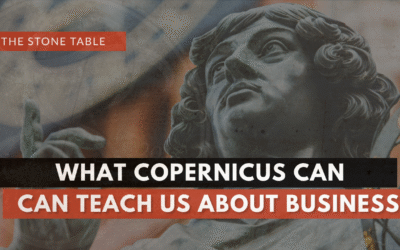The Folly of Workism: A Brief Theological Treatise

Workism, a common new “religion” in the US and other Western cultures, has ridden the waves of secularism and taken a spotlight in the past few years within the global West.
Workism promotes a sense of valuing oneself based on production and finding oneself rooted in a security of their own making. It is kind of an ironic fruit of secularism & capitalism, as secularism seeks to root out religion from societal function, but in turn workism has become its own religion. Shouldn’t we then technically root out workism from society as well?
It sounds like folly (defined as: foolishness or a costly undertaking having a ruinous outcome).
Let’s examine some further constructs of workism and the workist perspective, and why they are not compatible with orthodox Christianity.
Workism: Production Over Purpose
One digestible facet of workism that speaks quite clearly is the concept of “production over purpose”. In many ways, this speaks volumes on its own, but when it comes to the workist perspective, the production comes first, and in that there is found some form of purpose.
Rather than driving life works off purpose, the general doctrine of workism will call to find the capability of the person to produce things more valuable and endearing to their sense of identity. Therefore, worth is found not in being something, but in doing something.
Workism will allot production as the sole goal and the sole mediator of identity. If one is not producing, one is not valuable; if one is producing, the more so they do, the more valuable they become. This is not truth, but simply the monogrammed doctrine of workism.
The ironic thing about deriving a sense of purpose from work is that it literally flips the equation backwards. Purpose is meant to drive work, not work driving purpose. Allowing work to hold that space in our hearts & lives derives itself not from the created order, but from man’s broken image of it. We will dive into that later, though.
Why this is ironic is because it sells purpose short. If we can only catch our true purpose & identity from the act of working, as workism states, then we allow a created concept to master us. Yet, we find that workists often see themselves as their own gods in a way – being the ones that created their own destiny, path, and purpose. Herein lies the irony, though, right? We become subject to our own work. We’ve enslaved ourselves in our own pursuit for personal freedom. That’s ironic to me.
Eschatological Implications
Another interesting concept about workism’s “production over purpose” theology is that it presents a clear eschatological view that there is really nothing beyond this life; therefore, we must push to go, go, go for all the days of our life. How sustainable is that?
If we have no promise of salvation, no blessed hope, and no eternal life, we are simply striving for the maximum success rate that we can achieve in the here & now. It’s like being given a few decades to get the highest score in life as possible, and then see if anyone tops you in the next few decades. Even if you landed at the number one spot on the board, someone would always come along and knock you out of the top ten in next season’s rankings. All is vanity.
What this presents is an eschatology that resonates similarly with secularism, naturalism, humanism, and any other humanistic philosophies of our day – one that presents no genuine hope or eventual outcome beyond death. Life is but a vapor.
Next, we further examine the transgression of workism as a form of worship.
Workism as Idolatry
God created work – let’s just get that out in the open to start with here. However, it was man that took work, God’s creation, and turned the created subject into something to be worshipped – worshipping the creation rather than the Creator.
In workism, a person strives to create something out of nothing. They seek to form their own identity & purpose through a created subject, seeking to make something of themselves, their lives, and their purpose or identity through the work of their hands. Does this sound familiar at all?
A person then inserts themselves into the role of creator, taking the seat of God in their lives, and becomes the sole proprietor of an affluent life destined for derailment (aka, it’s folly). Here, the person assumes this role of their own power & will and has created for themselves a god in their own image: namely, themselves.
So, why is this destined for derailment, one may ask? I’m glad that came up!
Due to the nature of worship, God takes it rather seriously. Seriously enough, in fact, that His first command to the Israelites after delivering them from slavery in Exodus 20:3 was: “You shall have no other gods before Me.” That seems like a pretty important command, and it is. It is the first of the Ten Commandments.
Workism creates a false god of work and slots in the false god of self in the process – if it is practiced successfully. In so doing, we condemn ourselves for our worship of other gods – the gods outside of the God that give us our sense of security, identity, sufficiency, righteousness, and salvation. That is what we look for in something to worship; that is what we look for in a religion; and that is what God Himself was always meant to be for us.
In practicing workism, we practice idolatry. Let’s now look further at why this practice is not compatible with orthodox Christianity.
Workism and Christianity
Workism simply isn’t a compatible practice, or religion, with orthodox Christianity. Christianity, the worship of the LORD God, Yahweh, is an exclusive faith – it does not accept blending, mixing, or pieces of anything else in it. God has created it, and He has made it of His own will. Nothing is to be added to it or taken away (Deuteronomy 4:2, 12:32; Proverbs 30:6; Galatians 1:8-9; Revelation 22:18-19).
As Christians, we derive our source of identity from the God who created us. Our identity is found exclusively in the context of relationship to Him, not outside of that. However, in workism, being that it is a form of idolatry, it actually separates us from God as sin, therefore alienating us from the one relational context in which we can find out who we were truly created to be. Isn’t that also ironic?
Workism promotes a sense of self-defined identity, but this is not the Gospel, nor was this was God’s created plan from Genesis. However, it was always sinful man’s intention. Here, we simply see the newest form of religion that the fallen nature has generated – one that is based on salvation by works, with no concept of relationship with the Father that loves us.
While we as Christians certainly have a Biblical precedent to work, and to work with excellence, work is not our source. Work is not our identity, provider, or our god. We know that all good things come from God, even work, and therefore we can use work as a vehicle in which to worship the God that created it.
We are meant to be dependent on God for our daily needs, as well as our sense of self. Our healing, provision, prosperity, relational wellness, and salvation all source themselves from the living water, which is Christ.
If we drink of workism, we will always be thirsty. But Jesus answers,
“Everyone who drinks this water will be thirsty again, but whoever drinks the water I give them will never thirst. Indeed, the water I give them will become in them a spring of water welling up to eternal life.” (John 4:13-14, NIV).






